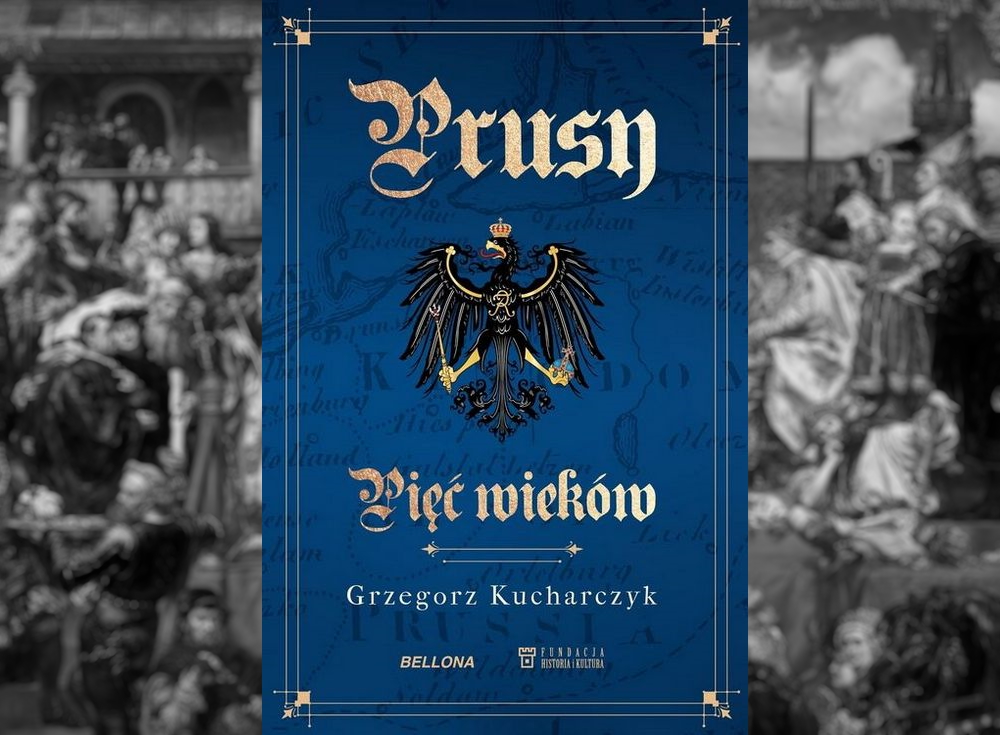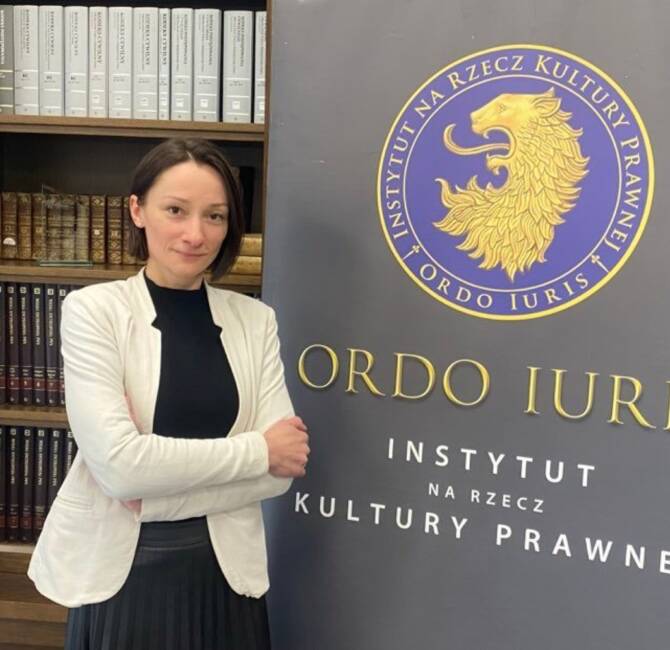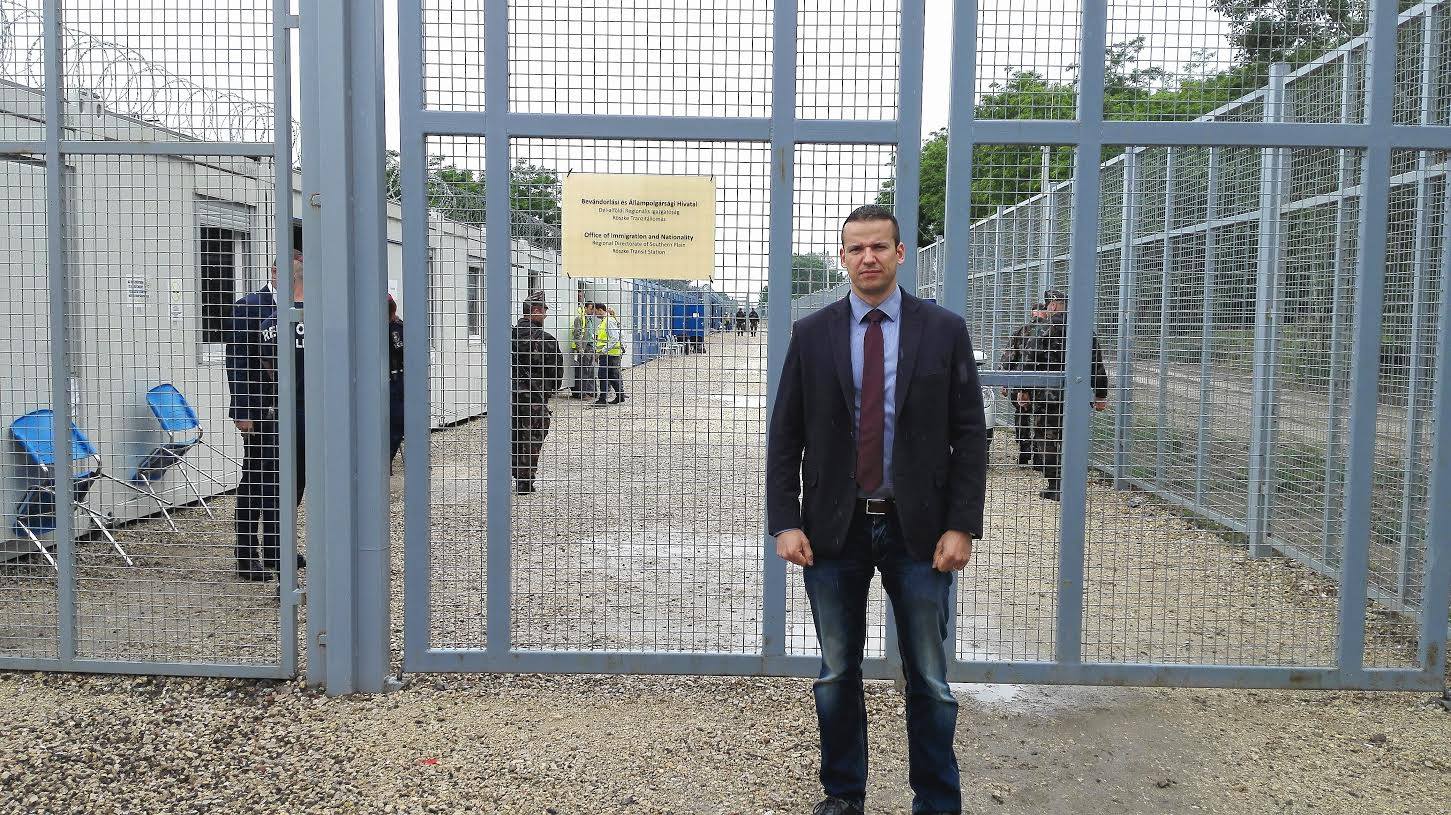Grzegorz Kucharczyk is a Polish historian and Humanities professor, specialised in 19th and 20th century political thinking as well as the history of Germany. One of his latest offerings is “Five Centuries of Prussia” (Prusy, Pięc wieków), published by the Historical and Cultural Foundation (FHiK) in autumn 2020, in which he presents a concise study of the Prussian state from the 16th to 20th centuries. In order to shed new light on the subject, Professor Kucharczyk, whilst concentrating on political history, also takes into account other important aspects such as Prussian culture, society and economy.
Sébastien Meuwissen interviewed him on Polish-Prussian relations.
Sébastien Meuwissen: When people talk about Prussia, they instantly think “militarism”, “discipline” or “brutality”. Some even go as far as to call this territory the “Sparta of the North”. In Poland, Prussia doesn’t have a good reputation. Indeed, more than 70% of modern-day Poland was under Prussian occupation at one point or another. Furthermore, Prussian policy was at total odds with the Poles. At the start of the 16th century, the Polish-Lithuanian Commonwealth had reached its zenith and its leaders had started a series of errors that would allow the Prussians to become a European power. How did such a dramatic change happen?
Grzegorz Kucharczyk: Polish foreign policy with regards to its Prussian neighbour between the 16th and 18th centuries can be summed up as a long series of missed opportunities, whereas the fortunes of the Hohenzollerns were the total opposite. During this period, Prussia seized every opportunity to implement its ambitions. Firstly, to secure Prussian sovereignty. Secondly, to weaken the Commonwealth from the inside. Frederick-William I, Grand Elector of Brandenburg, mentions in his political testament that it was essential to maintain good relations with the “Republic that never dies” but you must bear in mind that he didn’t write this in order to express any sort of friendship to the Poles. When he says “republic”, he actually means the parliament as all that was needed was simply to find just one corrupt representative willing to use the “liberum veto” to paralyse the parliament and thus the entire Commonwealth. On the Polish side, we had the opportunity in 1525 to influence the course of events in this region even with the growing presence of the then-Duchy of Prussia. Whilst ethnically German, the opposition of the Prussian nobility and bourgeoise to Brandenburger domination would have been a great opportunity for Poland to seize upon.
Both these elements of Prussian society saw the Commonwealth system as a model to follow in order to guarantee freedom and the rule of law and the arrival of the Hohenzollerns was seen more as an act of oppression rather than freedom.
Unfortunately, Poland was then in the midst of internal political conflict and didn’t seize the occasion.
Sébastien Meuwissen: Prussia is quite unique when you study the different European states at that time. Until the 16th century, Prussian territory was more or less confined to the modern enclave of Kaliningrad and the north-east of modern-day Poland. In the centuries that followed, a certain “nation state project” started developing. Can you explain what this project entailed?
Grzegorz Kucharczyk: Compared to other European states of the 16th and 17th centuries, Prussia remains an exception. In terms of a state, Prussia only emerges thanks to a number of factors. What merges the Margraviate of Brandenburg with the old Teutonic Order is the Hohenzollern dynasty. In 1525, following the adoption of Protestantism by Albercht Hohenzollern, the last Grand Master of the Teutonic Order, Prussia became a secular principality and a vassal of the Kingdom of Poland. It is the marriage of Berlin (Brandenburg) and Königsberg (old Teutonic Order) that gives birth to a Prussian state but this isn’t enough as both these entities had to create some sort of common link between them to complete the process. This link would only be found in the 18th century and that link was the army.
King Frederick-William I, nicknamed “the sergeant”, practically put all the might of the state at the service of the army and created a veritable phenomenon. Almost every aspect of government was to serve the army during the course of the first half of the 18th century.
Meantime, the Polish-Lithuanian Commonwealth sank deeper and deeper into chaos.
Sébastien Meuwissen: You mention Frederick-William I’s golden rule of “applying the law of favourable circumstances” several times in your book. In other words, he advocated a pragmatic approach with regards to Prussian foreign policy and taking advantage of his rivals’ weaknesses to weaken them further and strengthen his own position. His successors also followed this rule for decades to come, notably Frederick II, his direct successor. How did the Hohenzollerns proceed to rise their central European state to the rank of continental powerhouse? How did they go about imposing their will on their new subjects, notably the Poles?
Grzegorz Kucharczyk: Frederick II can be considered as the last great Prussian sovereign of the Hohenzollern dynasty, which would could to an end in 1918. After his death in 1786, none of his successors were able to come close to matching his energy and efficiency as a leader or even the qualities possessed by Frederick-William I. Both these leaders were the real founders of Prussian power and unity.
Since the reign of Frederick II, which lasted from 1740 to 1786, we can see a trend that would last throughout the 19th century. This trend can be characterised as a form of tension between the desire to integrate the Prussian state on the one hand, and modernise it on the other.
Indeed, the territories annexed by Frederick II can be considered as veritable “game changers”, if we are to use today’s language, since they changed the entire political landscape of Central Europe. Silesia had been taken from Austria in 1740, which allowed Prussia to make good on her losses during the Seven Years’ War, which came to an end in 1763. This annexation changed everything: Firstly, one only needs to take a look at a map of Europe to understand that by taking Silesia, Frederick II had secured Berlin (the nerve centre of his kingdom) from a future potential Austrian attack. Secondly, he was now closer to Vienna than before and lastly, Prussia now encircled Poland.
All of Frederick II’s successors continued to enlarge his dominion at the expense of Poland, which had been Prussian strategy since the 16th century. When Poland was carved up at the end of the 18th century, Prussia got Eastern Pomerania and Greater Poland, which now allowed territorial continuity from Königsberg to Wrocław.
Polish leaders at the time were incredibly naïve and failed to notice that between these two towns lays Poznań, which was inevitably going to the Prussians next target.
These expansions led to demographic changes for the Prussian population from both an ethical and, more importantly, religious point of view. It isn’t a coincidence that this is the time when the “Catholic problem” started to be discussed in Prussia for her new conquests were inhabited predominately by Catholics or in other words, by Poles.
Along with the “Polish problem”, the annexation of the Third Partition of Poland also raised the issue of the “Jewish problem” since these new lands greatly increased the Jewish population within Prussia. If we were to compare a map of modern-day Poland with Prussia at that time, we would notice that three quarters of the former was contained within the latter. Thus started a long series of issues integrating these populations into the Hohenzollern kingdom whilst also trying to continually modernise the economy.
Sébastien Meuwissen: When we think of Prussia, Otto von Bismarck instantly springs to mind. When we study his writings, we get the impression that Poland is a nation of retarded savages that need to be civilized. What do you think about this superiority complex?
Grzegorz Kucharczyk: The cultural superiority complex exhibited by the Prussian political and intellectual elite with regards to the Poles was already well-established in the 18th century. You only need to read what Frederick II wrote in his political will regarding his Slavic neighbour to see that: He talks about the Poles as “the last of European nations” because of the alleged failings of their political system and its social structure, which the Prussians saw as chaotic. In Poland, there was no middle class, the nobility was egotistical and the peasants were poor and discriminated against. The Poles were thus perceived by the Prussians of the 18th century as a country with no future and no past.
If we read what other important Prussians, such as Emmanuel Kant, Georg Wilhem Freidrich Hegel or Wilhem von Humboldt, thought about Poland, we discover that they all considered that it was a failed state. Within this context, carving up Poland at the end of the 18th century was seen by the Prussians as an opportunity for the Poles to catch up and modernise and that they should be thankful to be able to be part of this kulturstaat.
Another thing that was well-established in the mindset of the Prussian leaders was the notion that any form of autonomy, never mind independence, of Poland would constitute a danger to the Prussian state.
In a letter to his sister, Bismarck wrote that it would be appropriate to “beat the Poles like wolves…until their will to live subsides.”
This letter was written when Bismarck was visiting St. Petersburg and details, with frustration, how the Russians were changing their attitudes towards the Poles to something more friendly than their Germanic neighbours, going as far as to consider some form of autonomy. The Prussian government were steadfastly against such notions, believing that the any autonomy given to the Poles represented an “existential threat to Prussian interests.” Bismarck, even though he repeatedly declared that the Poles were “a nation of chaos incapable of governing itself”, knew that not only could the Poles governed themselves if they were given the chance but they could also threaten Prussia. This attitude is similar to that held by Frederick II in the 18th century when he explained in a letter to to Voltaire how much the Poles were lawless and incapable of building a state. At the same time, he wrote alarming letters to Catherine II, Empress of Russia, trying to convince her to cease the reforms of the Polish parliamentary system in 1774. The Prussian king believed that the abolition of the principal of “liberum veto” would allow Poland to become a European power once more.
Therefore, we can clearly see that there was a Prussian sense of superiority over the Poles as well as the belief that it was “either us or the Poles”.
Sébastien Meuwissen: Let’s jump forwards 50 years. If we look at the maps of German electoral results at the beginning of the 1930s, we see that Adolf Hitler’s party, the NSDAP, got their best scores in the eastern provinces (Eastern Prussia, East Pomerania, etc.) of the Reich. It could even be said that without this “Prussian” support, Hitler would probably never have been made chancellor. What is your opinion on this subject?
Grzegorz Kucharczyk: That is quite a complicated question. Did Prussia help carry Hitler and national socialism to power? I would say that the Prussians certainly helped. Need I remind you that after the abolition of the German monarchy in November 1918, Prussia continued to exist in the form of a republic? That in itself is quite an event as it was the first time in history that Prussia was without a king and this Prussian republic hardly lasted 15 years. The Prussians also were the most powerful part of Germany in the inter-war years and controlled two-thirds of the territory that we then called the “Weimar Republic”. It was therefore normal that the decisions made within the large areas had a profound effect on the whole of Germany.
In my book, I make a point of highlighting the fact that the NSDAP got its best results in regions that were predominately Protestant and its worst scores in regions where there was a Catholic majority.
Sébastien Meuwissen: What links exist today between modern-day Germany and Prussia?
Grzegorz Kucharczyk: During the second half of the 20th century, the prevailing view in Western Germany was that it was necessary to distance itself from Prussia and its traditions.
Konrad Adenauer actually didn’t want Berlin to be the capital of reunited Germany because this city was “too tainted with Prussian brutality”. As you know, Helmut Kohl either ignored his predecessor or didn’t share his point of view.
In any event, we can see some sort of come-back of all things Prussian happening, especially if it is connected with the Hohenzollern dynasty. You only need to see the extent of the recent renovation of the Hohenzollerns’ castle in the middle of Berlin to realise that. It’s now known as the “Humboldt Forum” and hosts galleries, expositions and book collections. The objective of this project is to show Chinese, Japanese or American tourists that, when all is said and done, the Hohenzollerns were actually quite nice people. They collected books, paintings, played the flute and wrote in French to their philosopher friends! What are these Poles complaining about exactly when they talk about “Prussian expansionism”? For the 300 years anniversary of Frederick II’s birth in 2012, a whole series of events were held across Germany. There were special expositions, television programmes, notably on ARTE where the Prussian king was presented as an Enlightened sovereign, a modern man that wrote in French to his friend Voltaire. We are therefore witnessing a certain rewriting of what Prussia actually was. No longer is it to be consider a brutal and militaristic state but rather a progressive and modern country.





